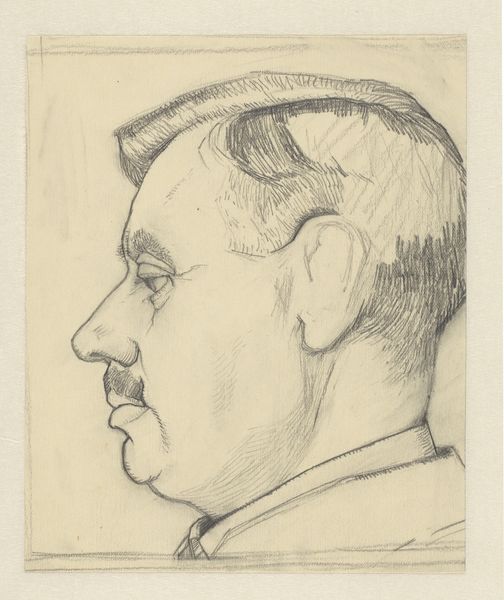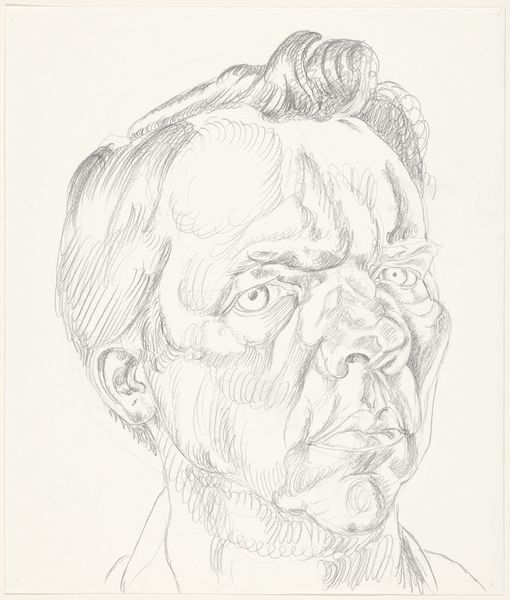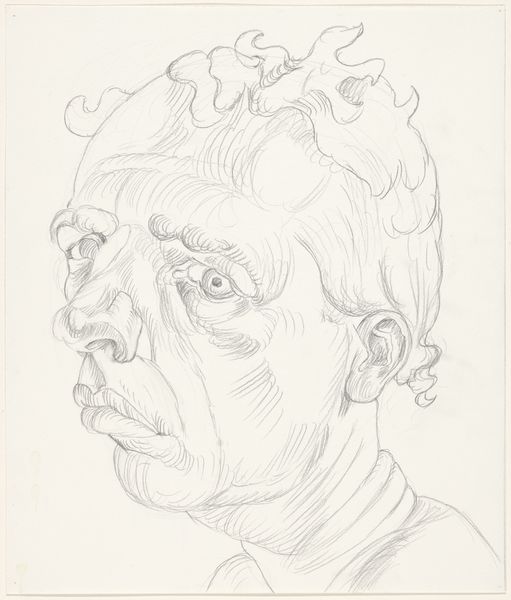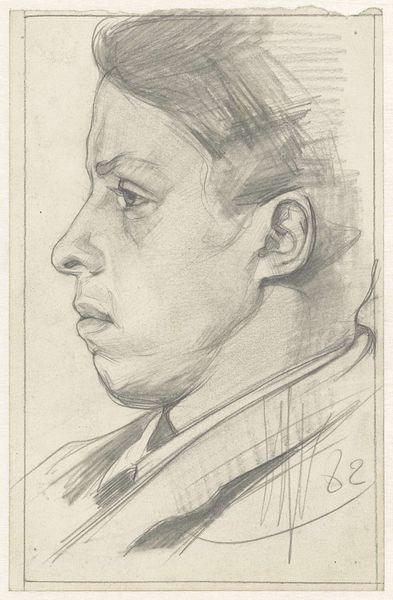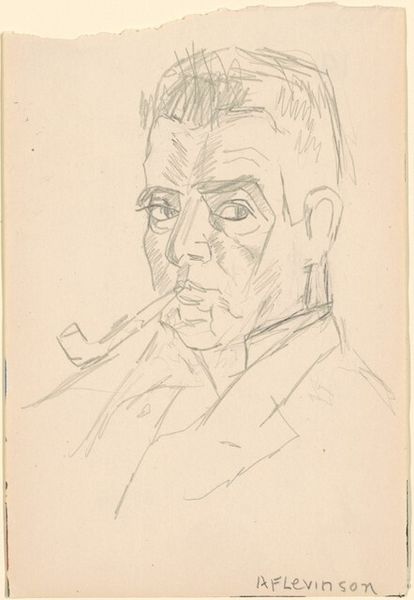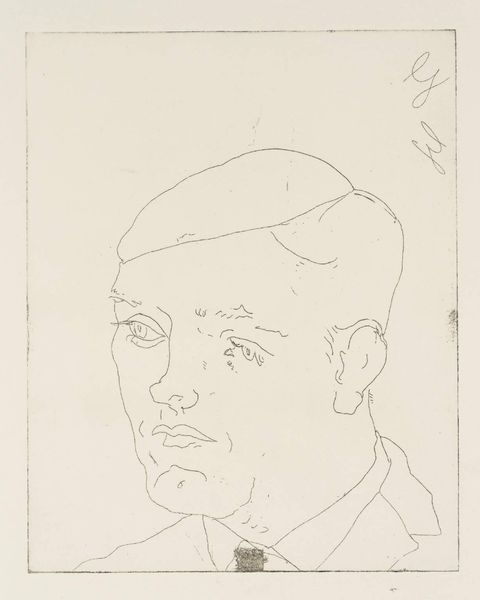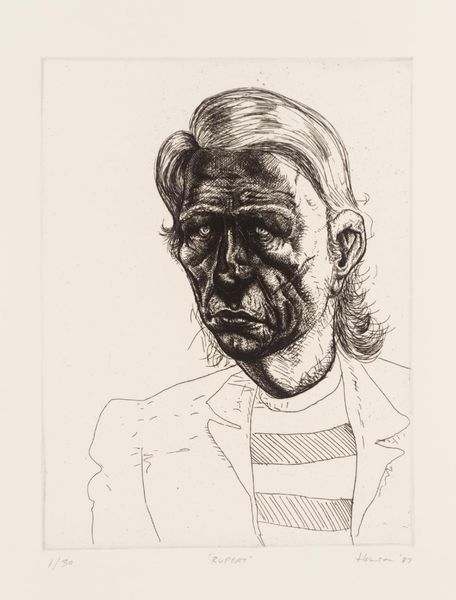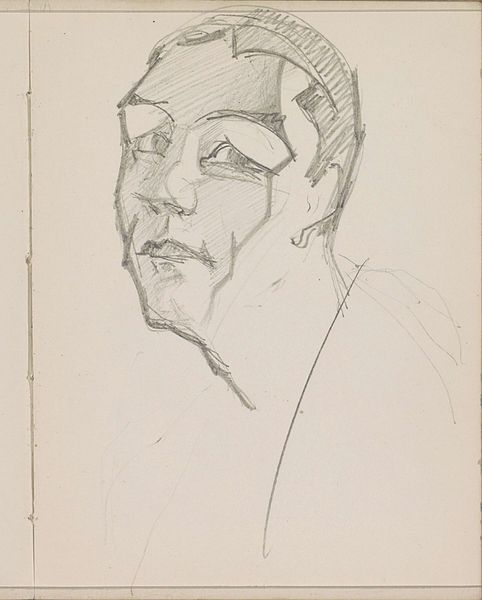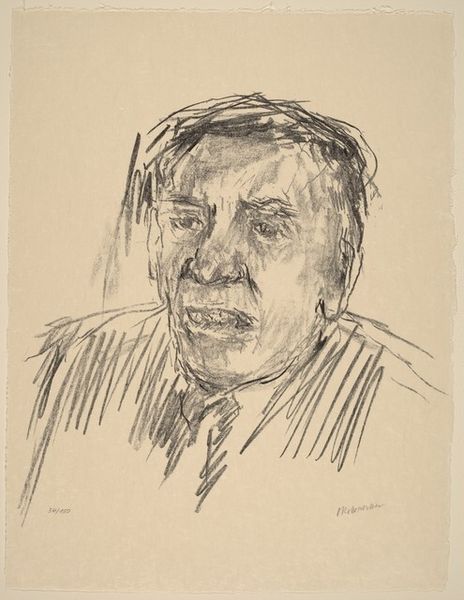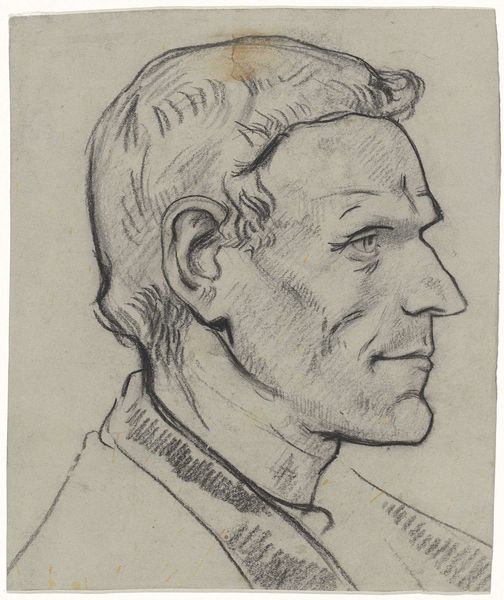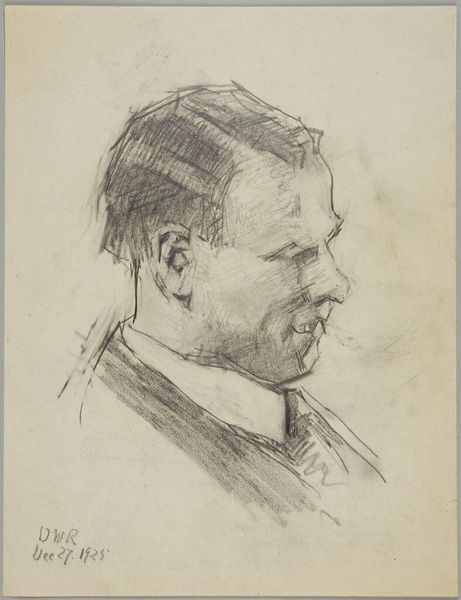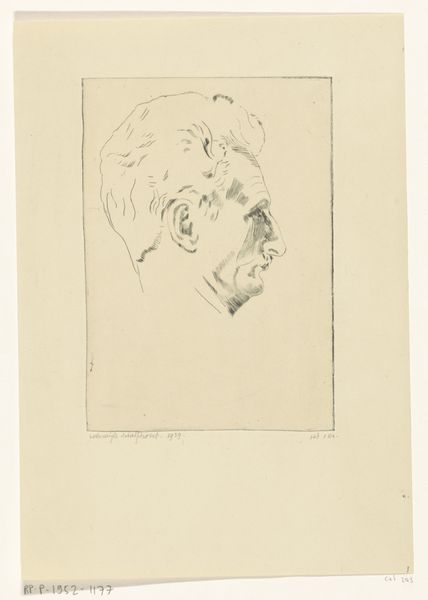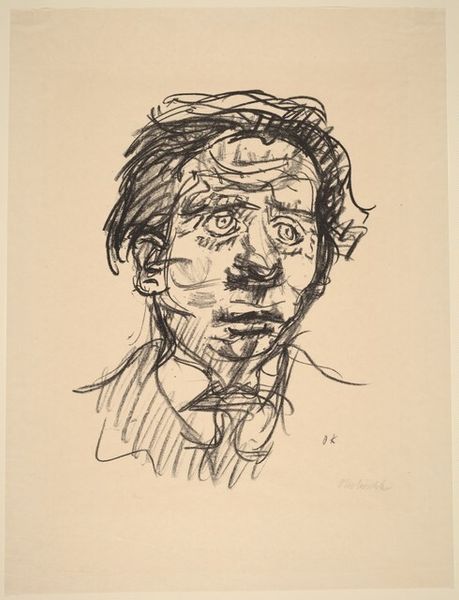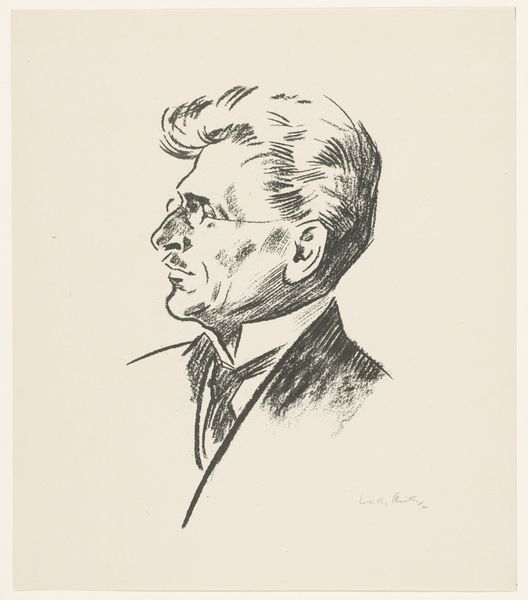
drawing, pencil
#
portrait
#
drawing
#
facial expression drawing
#
portrait reference
#
pencil
#
animal drawing portrait
#
portrait drawing
#
facial study
#
facial portrait
#
portrait art
#
fine art portrait
#
celebrity portrait
#
digital portrait
Dimensions: height 400 mm, width 325 mm
Copyright: Rijks Museum: Open Domain
Editor: We’re looking at Philip Akkerman's "Self-Portrait 1992 No. 105," a pencil drawing from 1992. There's something almost unsettling about it—the intensity of the gaze, perhaps? How do you interpret this work? Curator: It’s a compelling piece precisely because of that unsettling feeling. Akkerman relentlessly explored the self-portrait, and this work resonates with the broader societal pressures placed on identity, particularly masculine identity, at the close of the 20th century. Note the almost architectural rendering of his face - like a constructed edifice. Editor: Constructed, as in, deliberately built up? Curator: Yes. Consider the date: 1992. What was happening then culturally? We see a rise in discussions about representation, about challenging dominant narratives. This portrait feels like a challenge to idealized portrayals of masculinity, almost deconstructing the idea of a stable, coherent self. Is Akkerman reflecting anxieties? Questioning performative roles? Editor: So you’re saying the roughness, the lack of idealization, is part of a larger cultural conversation? Curator: Precisely. It refuses easy consumption. The viewer is forced to confront the complexities and potential vulnerabilities beneath the surface. Think about the history of portraiture, traditionally used to convey power and status. This subverts that tradition. How does this tension inform your own viewing? Editor: I didn't think about it that way, it makes me consider the subject's emotional state, which seems more layered. I initially thought it was just a depiction of a person, but it opens up questions about identity, and that reflective subversion is fascinating. Curator: Indeed. And that's where the real power of art lies: in sparking that critical dialogue with ourselves and the world around us.
Comments
No comments
Be the first to comment and join the conversation on the ultimate creative platform.
